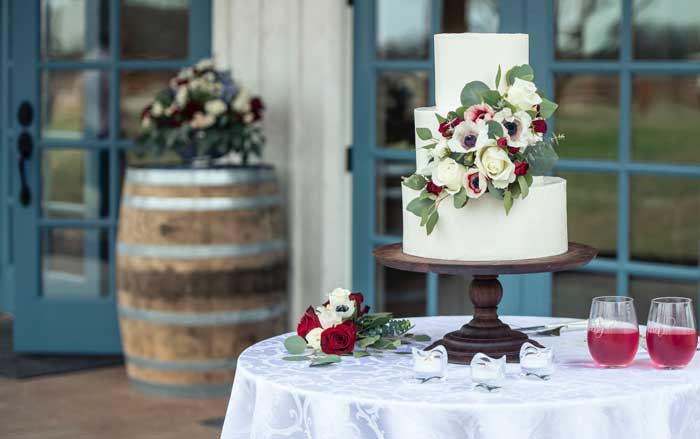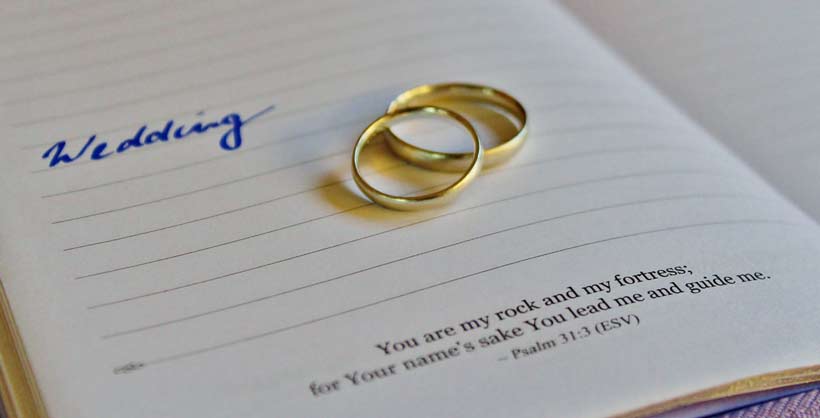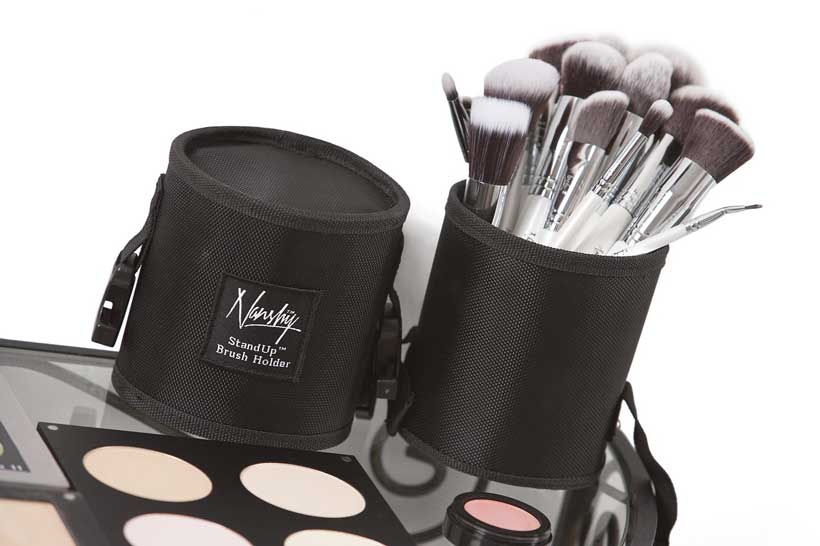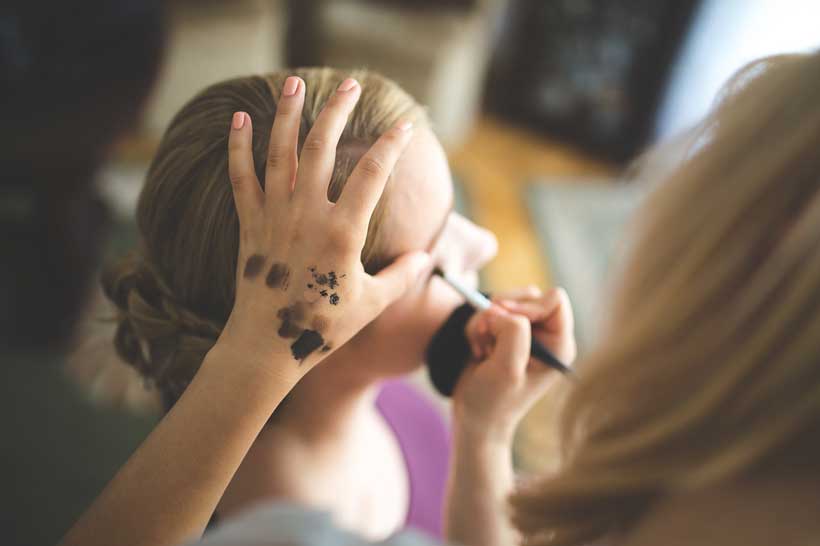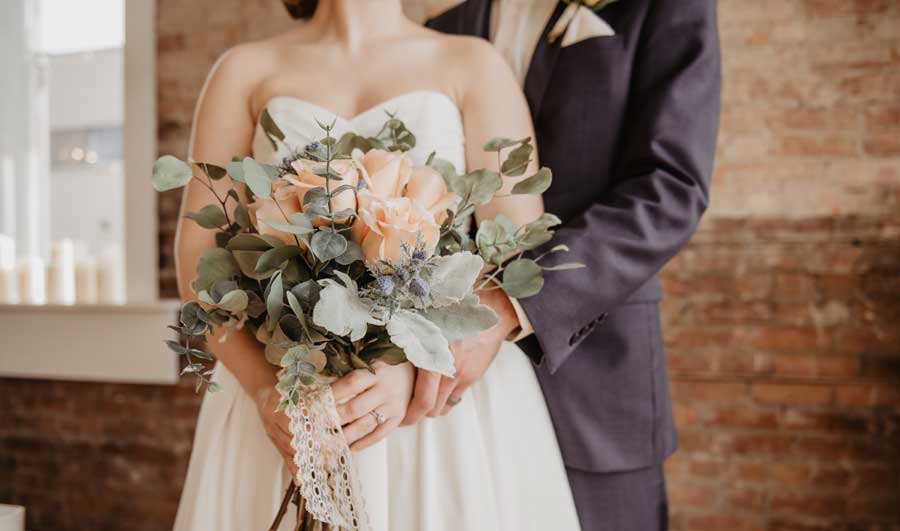
Planning your wedding can be both exciting and overwhelming. With so many details to consider, it’s easy to feel lost in the process. But fear not, with the right tips and guidance, you can plan your dream wedding without the stress.
The first step in planning your wedding is to set a budget. This may not be the most fun part of the process, but it’s essential to determine how much you can afford to spend on your big day. Once you have a budget in mind, you can start making decisions about the venue, catering, and other important details.
Another important aspect of planning your wedding is to determine your priorities. What are the most important aspects of your wedding day? Is it the venue, the catering, or the music? By identifying your priorities, you can focus your time and resources on the things that matter most to you and your partner.
Setting Your Wedding Budget
Planning a wedding can be an exciting and overwhelming experience. One of the most important steps in planning your wedding is setting your budget. In this section, we’ll discuss why setting a budget is important, how to determine your budget, and tips for sticking to it.
Why Set a Budget?
Setting a budget is the first step in planning your wedding. It helps you determine how much you can afford to spend and ensures that you don’t overspend. By setting a budget, you can prioritize what’s most important to you and allocate your funds accordingly.
Determining Your Budget
The first thing you should do is determine who will be contributing to your wedding budget. Will it be just you and your partner, or will family members be contributing as well? Once you know who will be contributing, you can determine how much you can realistically afford to spend.
When determining your budget, consider the following:
- The number of guests you plan to invite
- The location and venue of your wedding
- The time of year you plan to get married
- The type of wedding you want (casual, formal, etc.)
- The cost of vendors (catering, photography, etc.)
Sticking to Your Budget
Sticking to your budget can be challenging, but it’s important to avoid overspending. Here are a few tips to help you stay on track:
- Set your budget early in the planning process and stick to it
- Consider DIY projects to save money
- Shop around for vendors and compare prices
- Be open to alternative options, such as a brunch wedding instead of a dinner reception
- Track your expenses and adjust your budget as needed
Remember, your wedding day is about celebrating your love and commitment to each other. Don’t let the stress of finances overshadow the joy of the occasion. By setting a budget and sticking to it, you can have the wedding of your dreams without breaking the bank.
Choosing Your Wedding Venue
One of the most important decisions you’ll make when planning your wedding is choosing the perfect venue. Here are some factors to consider when making your decision:
Factors to Consider
- Location: Choose a location that is convenient for you and your guests. Consider the distance from the ceremony location, reception venue, and accommodations.
- Size: Make sure the venue can accommodate the number of guests you plan to invite.
- Style: Choose a venue that matches the style and theme of your wedding. Whether you want a rustic barn or a modern ballroom, there are plenty of options available.
- Budget: Consider the cost of the venue and how it fits into your overall budget. Don’t forget to factor in additional costs such as catering, decorations, and rentals.
- Amenities: Look for venues that offer amenities such as catering, tables and chairs, linens, and decorations. This can save you time and money in the long run.
Indoor vs. Outdoor Venues
Deciding between an indoor or outdoor venue can be a tough choice. Here are some pros and cons to consider:
| Indoor Venues | Outdoor Venues |
|---|---|
| Weather is not a concern | Beautiful natural scenery |
| Climate-controlled environment | May require additional rentals (tent, heaters, etc.) |
| Less planning required for setup and cleanup | May have noise restrictions or curfews |
Destination Weddings
If you’re considering a destination wedding, there are a few things to keep in mind:
- Research the legal requirements for getting married in your chosen location.
- Consider the cost and logistics of travel for you and your guests.
- Choose a venue that can accommodate all of your wedding events, such as the ceremony, reception, and rehearsal dinner.
- Work with a local wedding planner who can help you navigate the area and coordinate with vendors.
Creating Your Guest List
Creating your guest list is one of the most important tasks when planning your wedding. In this section, we’ll provide you with some tips on who to invite, managing your guest list, and sending invitations.
Who to Invite
The first step in creating your guest list is deciding who to invite. Start by making a list of all the people you want to invite, including family, friends, and coworkers. Once you have a list, it’s time to start narrowing it down.
Consider your budget and venue size when deciding who to invite. You don’t want to invite more guests than your budget or venue can accommodate. You may also want to consider having an adults-only wedding or limiting plus-ones to only married or engaged couples.
Managing Your Guest List
Managing your guest list can be a daunting task, but it’s important to keep track of who you’ve invited and their RSVP status. Consider using a wedding guest list app or a wedding guest list spreadsheet to keep track of your guests.
When managing your guest list, be sure to include important information such as their name, address, and RSVP status. You may also want to include information about their meal preference or any special accommodations they may need.
Sending Invitations
Once you’ve finalized your guest list, it’s time to send out your wedding invitations. Be sure to send them out at least 8 weeks before your wedding date to give your guests enough time to RSVP.
When sending out your invitations, be sure to include important information such as the date, time, and location of your wedding. You may also want to include information about accommodations for out-of-town guests or a dress code.
Remember, your guest list is an important part of your wedding planning process. Use these tips to help you create a guest list that fits your budget and venue size, and be sure to manage your guest list carefully to ensure that your wedding day is stress-free and enjoyable for everyone.
Selecting Your Wedding Vendors
Choosing the right vendors for your wedding is crucial to ensure that everything runs smoothly and that your special day is everything you dreamed it would be. Here are some tips to help you select your wedding vendors.
Photographer and Videographer
Your wedding photos and videos will be the memories that last a lifetime, so it’s important to choose the right photographer and videographer. Start by looking at their portfolios to see if their style matches your vision for your wedding. Meet with them in person to get a sense of their personality and to make sure you feel comfortable working with them. Make sure to discuss the details of the package they offer, such as the number of hours of coverage, the number of photos you will receive, and whether they provide prints or digital copies.
Florist and Decorator
Your florist and decorator will help create the ambiance and aesthetic of your wedding, so it’s important to choose someone who understands your vision. Look at their previous work to see if their style matches what you’re looking for. Discuss your budget upfront and ask for suggestions on how to create the look you want within your budget. Make sure to discuss the details of the contract, including the delivery and setup times, and any additional fees for rentals or extra decor.
Caterer and Baker
Your caterer and baker will help ensure that your guests are well-fed and happy. Start by deciding on the type of cuisine you want and any dietary restrictions you need to accommodate. Look at their menus and ask for recommendations on what dishes are popular. Consider doing a tasting to make sure you like the food. Make sure to discuss the details of the contract, including the number of servers, the timeline for the meal, and any additional fees for rentals or extra services.
Music and Entertainment
Your music and entertainment will set the mood for your wedding reception. Decide on the type of music you want and whether you want a live band or a DJ. Look at their previous work and ask for recommendations on what songs are popular. Consider doing a live audition to make sure you like their style. Make sure to discuss the details of the contract, including the timeline for the music, any special requests you have, and any additional fees for extra services.
Wedding Planner
A wedding planner can help you with every aspect of your wedding planning, from selecting vendors to coordinating the day-of logistics. Look for a wedding planner who has experience planning weddings similar to yours and who understands your vision. Discuss your budget upfront and ask for recommendations on how to allocate your budget wisely. Make sure to discuss the details of the contract, including the timeline for their services, the number of meetings you will have, and any additional fees for extra services.
Choosing Your Wedding Attire
Bridal Gown and Accessories
Choosing your wedding dress is one of the most exciting parts of planning your big day. Start by browsing through bridal magazines and online galleries to get an idea of the styles you like. Consider the theme of your wedding, the season, and the venue when selecting your dress. When shopping for your gown, bring along a trusted friend or family member who knows your style and can give you honest feedback. Don’t be afraid to try on different styles, even ones you may not have considered before. Remember, what looks good on a hanger may not look good on you, so keep an open mind. In addition to your gown, consider accessories such as shoes, jewelry, and a veil or headpiece. Choose accessories that complement your dress and enhance your overall look.
Groom’s Attire
The groom’s attire should complement the bride’s dress and the overall theme of the wedding. A classic black tuxedo is a timeless choice, but don’t be afraid to mix it up with a colored suit or a more casual look if that fits your style and the vibe of your wedding. When selecting the groom’s attire, consider the season and the venue. For an outdoor summer wedding, a lighter fabric such as linen may be more comfortable. For a winter wedding, a heavier wool suit may be more appropriate.
Wedding Party Attire
When it comes to dressing your wedding party, consider the style and color scheme of your wedding. Bridesmaids’ dresses should complement the bride’s gown, but don’t be afraid to let your bridesmaids choose a style that flatters their individual figures. For the groomsmen, consider matching their attire to the groom’s, but with a slight variation such as a different colored tie or vest. This will create a cohesive look without being too matchy-matchy. Remember to factor in the comfort of your wedding party when choosing their attire. They will be standing and dancing for hours, so choose fabrics that are breathable and comfortable. Overall, choosing your wedding attire should be a fun and enjoyable process. Keep an open mind, consider the theme and season of your wedding, and choose attire that makes you feel confident and comfortable on your special day.
Planning Your Wedding Ceremony
Your wedding ceremony is one of the most important parts of your big day. It’s the moment when you and your partner will officially become married, so it’s important to plan it carefully. Here are some tips to help you plan the perfect wedding ceremony.
Officiant and Marriage License
The first step in planning your wedding ceremony is to find an officiant and obtain your marriage license. Your officiant will guide you through the ceremony and make sure everything runs smoothly. It’s important to choose someone you feel comfortable with and who shares your vision for the ceremony. You should also make sure to obtain your marriage license well in advance of your wedding day to avoid any last-minute stress.
Ceremony Location
The location of your wedding ceremony can set the tone for the entire day. Whether you choose a church, a beach, or a garden, make sure the location reflects your personal style and the overall theme of your wedding. You should also consider the logistics of the location, such as parking, accessibility, and seating arrangements for your guests.
Wedding Style and Theme
When planning your wedding ceremony, think about the style and theme you want to convey. Do you want a traditional ceremony or something more modern? Will your ceremony be formal or casual? Your wedding style and theme should be reflected in the decor, music, and overall atmosphere of the ceremony. Consider incorporating personal touches, such as special readings or cultural traditions, to make the ceremony unique to you and your partner.
By following these tips, you can plan a wedding ceremony that is meaningful, memorable, and reflects your personal style and vision for your big day.
Planning Your Wedding Reception
After the ceremony, it’s time to celebrate with your guests at the reception. Here are some tips to help you plan the perfect wedding reception.
Reception Venue
The reception venue is one of the most important decisions you’ll make. Consider the number of guests you’ll have and make sure the venue can accommodate them comfortably. Think about the location, accessibility, and parking options for your guests. You may also want to consider the style and ambiance of the venue to ensure it fits your wedding theme.
Menu and Catering
The menu is another essential aspect of your wedding reception. Choose a caterer that can provide you with a variety of options that fit your tastes and budget. You may also want to consider any dietary restrictions of your guests. Buffet-style or plated meals are both popular options. Don’t forget to also consider the bar options, such as an open bar or a cash bar.
Seating Chart and Table Settings
Creating a seating chart can be a daunting task, but it’s important to ensure your guests are comfortable and can enjoy the reception. Consider creating a seating chart that allows guests to sit with people they know or share common interests. You can also choose to have assigned seating or open seating. Don’t forget to also think about the table settings, such as centerpieces, tablecloths, and place settings.
Wedding Favors and Hashtags
Wedding favors are a great way to thank your guests for celebrating with you. Consider personalized favors that reflect your wedding theme or something that your guests will enjoy. Don’t forget to also create a wedding hashtag for your guests to use when posting about your wedding on social media. This will allow you to easily find and share all the photos and posts from your special day.
Planning Your Pre-Wedding Events
Before the big day, there are a few pre-wedding events that you’ll want to plan to celebrate with family and friends. Here are some ideas:
Engagement Photos
Engagement photos are a great way to announce your engagement and share your love story with your family and friends. You can take them yourself or hire a professional photographer to capture your special moments. Choose a location that is meaningful to you and your partner, such as the place where you had your first date or where you got engaged.
Save-the-Dates
Save-the-dates are a way to inform your guests about your wedding date and location, so they can mark their calendars and plan accordingly. You can send them digitally or via mail, and they can be as simple or elaborate as you want. Make sure to include your names, wedding date, location, and a note to keep an eye out for the formal invitation.
Rehearsal Dinner
The rehearsal dinner is a chance to gather with your wedding party and close family members to rehearse the ceremony and enjoy a meal together. You can choose to have it at a restaurant, someone’s home, or a venue that fits your style. This is also a great opportunity to give gifts to your wedding party and thank them for their support.
Planning your pre-wedding events can be a fun and exciting part of the wedding planning process. Use these ideas to create memorable experiences with your loved ones before the big day.
Planning for the Unexpected
Even with the most meticulous planning, unexpected situations can arise on your wedding day. Here are some tips to help you prepare for the unexpected:
Wedding Insurance
Wedding insurance is a type of insurance that can protect you from unexpected events that may occur on your wedding day. It can cover things like vendor no-shows, extreme weather, and even cancellations due to illness or injury.
Before purchasing wedding insurance, make sure to read the policy carefully and understand what is covered and what is not. Some policies may have exclusions or limitations, so it’s important to know what you’re paying for.
Plan B and Weather
Even if you’re getting married indoors, it’s important to have a backup plan in case of inclement weather. Consider renting a tent or indoor space as a backup option in case of rain or extreme heat.
Make sure to communicate your backup plan to your vendors and guests so everyone is aware of the plan in case it needs to be implemented.
Asking for Help
Don’t be afraid to ask for help if you need it on your wedding day. Enlist a trusted friend or family member to be your point person for any unexpected situations that may arise.
Make sure to communicate with your point person ahead of time and provide them with a list of important contacts, such as your vendors and wedding planner.
Remember, your wedding day is about celebrating your love with your partner. While unexpected situations can be stressful, having a plan in place and asking for help when needed can help ensure that your day is as stress-free as possible.
Conclusion
Congratulations on making it to the end of this wedding planning guide! You now have a solid understanding of how to plan a wedding from start to finish. Remember to plan ahead and stay organized throughout the process. Use a wedding planning checklist to keep track of all the important details.
Consider DIY projects to save money and make your wedding more personal. Pinterest is a great resource for inspiration and ideas.
Don’t forget about your fitness and wellness goals leading up to the big day. Start early and stay consistent with your diet and exercise plan.
When it comes to postage, make sure to weigh your invitations and RSVP cards to avoid any surprise costs. If you’re planning a wedding abroad, research the necessary legal requirements and consider hiring a wedding planner familiar with the area.
Choose a wedding photographer whose style matches your vision for the day. Don’t forget to consider wedding insurance to protect against any unforeseen circumstances.
Remember, this is your special day and it should reflect your unique style and personality. Have fun with the planning process and enjoy every moment!
